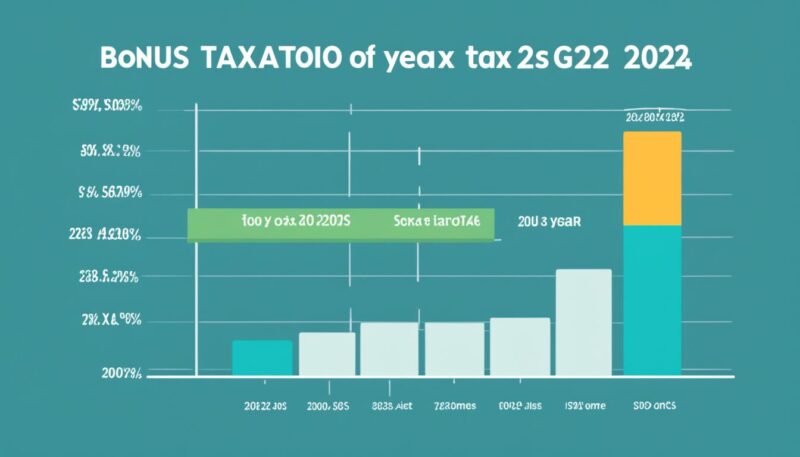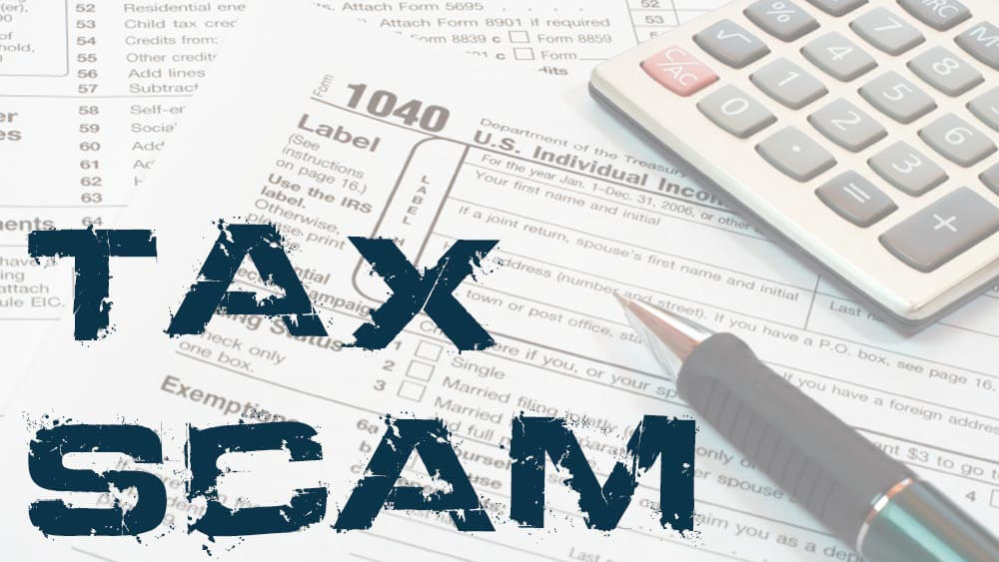Did you know that bonuses in the UK are taxed in the same way as regular income? That’s right, the extra cash you receive as a bonus is subject to the same tax rules and regulations as your salary.
When it comes to bonus taxation, it’s essential to understand the implications, rates, and calculations involved. The amount of tax you pay on your bonus depends on your income bracket and the associated tax rates. Additionally, receiving a bonus can potentially push you into a higher tax bracket, resulting in a higher tax rate on the bonus amount.
Key Takeaways
- UK bonuses are taxed in the same way as regular income.
- The tax you pay on your bonus depends on your income bracket and the associated tax rates.
- Receiving a bonus can potentially push you into a higher tax bracket, resulting in a higher tax rate.
- Understanding bonus taxation is crucial to effectively manage your finances.
- Consult with HMRC guidelines and tax professionals to ensure compliance with tax regulations and fulfill your tax obligations.
Understanding Tax on Bonuses
Bonuses in the UK are taxed in the same way as your regular income. This means that your PAYE tax, national insurance contributions, and student loan payments (if applicable) will be adjusted to account for the higher amount of income received from the bonus. If your total income, including the bonus, exceeds the tax-free income allowance of £12,570, you will be required to pay tax on the bonus amount. The tax payable on the bonus depends on your income bracket and the corresponding tax rates.
| Taxable Income Range | Tax Rate |
|---|---|
| Up to £12,570 | No tax |
| £12,571 – £50,270 | 20% |
| £50,271 – £150,000 | 40% |
To better understand the tax implications of bonuses, let’s look at an example. Suppose you receive a bonus of £5,000 and your total income, including the bonus, is £40,000. As your income falls within the basic rate tax bracket, the tax on your bonus amount will be calculated at a rate of 20%. This means you will be required to pay £1,000 in tax on your bonus.
It’s important to note that bonuses can push you into a higher tax bracket, resulting in a higher tax rate on the bonus amount. Therefore, it’s crucial to consider the potential tax implications when planning for and receiving bonuses.
Tax Calculation on Bonuses

The calculation of tax on bonuses is based on your total taxable income for the year, including any bonuses received. If your annual income, including the bonus, falls within the basic rate tax bracket (£12,571 – £50,270), the bonus amount will be taxed at the basic rate of 20%.
If your income, including the bonus, exceeds £50,270, you will be subject to higher rate tax on the portion of the bonus that exceeds this threshold. The higher rate tax is 40% for earnings between £50,271 – £150,000. It’s important to note that bonuses can push you into a higher tax bracket, resulting in a higher tax rate on the bonus amount.
Example:
Let’s say you receive a bonus of £10,000 on top of your annual salary of £40,000. Your total taxable income, including the bonus, is £50,000. Since this falls within the basic rate tax bracket, the bonus amount will be taxed at the basic rate of 20%. Therefore, you would pay £2,000 in tax on the bonus (£10,000 x 20%).
However, if your total taxable income, including the bonus, exceeds £50,270, the portion of the bonus that exceeds this threshold will be subject to the higher rate tax of 40%. For example, if your annual income is £80,000 and you receive a bonus of £20,000, your total taxable income would be £100,000. In this case, the portion of the bonus that exceeds £50,270 (£49,730) would be taxed at the higher rate of 40%, resulting in a tax payment of £19,892 (£49,730 x 40%).
Please note that the tax rates and thresholds mentioned in this article are based on the current tax year and may be subject to change. Always consult the latest HMRC guidelines or seek advice from a tax professional for accurate and up-to-date information regarding bonus tax calculation and rates.

| Tax Bracket | Tax Rate |
|---|---|
| Basic Rate Tax Bracket (Income up to £50,270) | 20% |
| Higher Rate Tax Bracket (Income between £50,271 – £150,000) | 40% |
Impact on Net Income
Bonuses can have a significant impact on your net income. When you receive a bonus, your take-home pay will be affected by tax and national insurance deductions, as well as adjustments to student loan repayments and pension contributions.
Let’s take a closer look at each of these factors:
- Tax and National Insurance Deductions: When you receive a bonus, your tax and national insurance contributions will increase. The exact impact on your net income depends on your total taxable income, including the bonus, and the associated tax rates and deductions. Higher bonus amounts can push you into a higher tax bracket, resulting in a higher tax rate on the bonus portion.
- Student Loan Deductions: If you have a student loan, the amount deducted from your bonus will be adjusted according to your total taxable income, including the bonus. The repayment amount is determined by your income and follows the current student loan repayment thresholds and rates.
- Pension Contributions: If you contribute to a pension, the amount deducted from your bonus will also be affected. The deduction is based on your total taxable income, including the bonus, and is determined by the percentage or fixed amount you contribute.
By considering these factors, you can get a better understanding of how bonuses may impact your net income. It’s important to plan accordingly and account for these deductions to manage your finances effectively.
Next, we’ll explore strategies to minimize the amount of tax you pay on your bonus and maximize your take-home pay.
Strategies to Minimize Tax on Bonuses

There are several effective strategies you can employ to minimize the amount of tax you have to pay on your bonus in the UK. By utilizing these strategies, you can make the most of your bonus and maximize your take-home pay. Here are some key approaches to consider:
1. Bonus Sacrifice
One strategy to minimize tax on bonuses is through bonus sacrifice. This involves opting to contribute a portion or even the entirety of your bonus into your pension fund. By doing so, you can benefit from tax relief on the bonus amount.
It’s important to note that there are annual limits on tax-free pension contributions. Currently, the limit is set at £60,000 or 100% of your salary, whichever is lower. If your salary is below this threshold, you have the opportunity to contribute your entire bonus amount into your pension while enjoying the associated tax relief.
2. Unused Allowance Carryover
Another strategy to reduce your tax liability on bonuses is to carry over any unused allowance from the previous three tax years. This can be done by examining your P60 to determine if you have any unused tax allowance that can be utilized.
The unused allowance can be applied to your bonus, effectively reducing the taxable amount. By taking advantage of this option, you can lower your tax liability and retain more of your bonus as take-home pay.
It’s essential to consult with a financial advisor or tax professional when considering these strategies to ensure you understand the implications and eligibility criteria.
| Strategy | Benefits |
|---|---|
| Bonus Sacrifice | Receive tax relief on bonus contributions to your pension. |
| Unused Allowance Carryover | Utilize unused tax allowance from previous years to reduce taxable amount. |
Important Considerations
While these strategies can be effective in minimizing tax on bonuses, it’s crucial to consider a few key points:
- Contributing your bonus to your pension means that you won’t be able to access the funds until you reach the minimum pension age, which is currently 55 years old.
- Ensure you stay within the limits set for tax-free pension contributions to avoid any penalties or additional tax liabilities.
- Consult with a financial advisor or tax professional to understand the specific implications for your individual circumstances.
By employing these strategies and optimizing your use of tax relief and unused allowances, you can effectively minimize the tax on your bonuses and maximize your overall financial gain.
Beware of Scams and False Claims

When it comes to bonus tax, it’s crucial to be cautious of scams and false claims that promise ways to completely avoid or significantly reduce the tax on your bonus. Unfortunately, there is no magic loophole or secret strategy that allows you to evade your tax obligations.
Your employer is legally obligated to deduct the appropriate amount of tax from your bonus based on your income and tax bracket. Any claims suggesting otherwise are simply untrue and could lead to serious consequences for both you and your employer.
Following HMRC Guidelines
To ensure you stay on the right side of the law when it comes to bonus tax, it’s essential to follow the guidelines set by HM Revenue & Customs (HMRC). The HMRC provides clear and specific instructions on how bonuses should be taxed and what your obligations are as a taxpayer.
By following the HMRC guidelines, you can rest assured that you’re fulfilling your tax obligations and avoiding any unnecessary risks associated with non-compliance.
Seeking Advice from Trusted Tax Professionals
If you have any doubts or questions about bonus tax, it’s always wise to seek advice from trusted tax professionals. Tax experts can provide you with personalized guidance based on your specific situation and help you navigate the complexities of the tax system.
By consulting with professionals who are knowledgeable in tax laws and regulations, you can gain a better understanding of your tax obligations and explore legal tax reduction methods that are compliant with the HMRC guidelines.
Protecting Yourself from Scams
Scammers often prey on individuals seeking ways to reduce their tax burden, especially when it comes to bonuses. To protect yourself from falling victim to these scams, it’s important to be vigilant and skeptical of any “too good to be true” claims.
Here are some tips to avoid bonus tax scams:
- Be wary of unsolicited communication, such as emails or phone calls, offering tax avoidance schemes.
- Double-check the credibility of any tax advice you receive and verify the source.
- Never provide personal or financial information to unknown or unverified individuals or organizations.
- Stay informed about the latest scams and warnings issued by HMRC.
Remember, if something sounds too good to be true, it probably is. Trusting reputable sources, following HMRC guidelines, and seeking advice from trusted professionals are the best ways to protect yourself from scams and ensure you’re fulfilling your tax obligations responsibly.
You can also read of: Best Options Trading Platforms for UK Investors
| Scams on Bonus Tax | False Claims about Bonus Tax |
|---|---|
| Scammers may promise ways to completely avoid or significantly reduce bonus tax. | False claims can mislead individuals into believing that there are loopholes or secret strategies to evade tax obligations. |
| Scammers often use unsolicited communication to target individuals seeking tax reduction methods. | False claims may come from unverified sources or unreliable tax advice. |
| Providing personal or financial information to scammers can lead to identity theft or financial fraud. | Falling for false claims can result in serious consequences, including penalties and legal issues. |
Conclusion

In conclusion, understanding the UK bonus taxation rules is crucial for anyone receiving bonuses as part of their income. Bonuses are taxed in the same way as regular income, with PAYE tax, national insurance contributions, and other deductions applied. The tax payable on a bonus depends on the individual’s income bracket and the corresponding tax rates.
Receiving a bonus can potentially push individuals into a higher tax bracket, resulting in a higher tax rate on the bonus amount. Therefore, it’s important to be aware of the implications of this taxation and its impact on net income.
While there may be strategies to minimize tax on bonuses, such as bonus sacrifice and utilizing unused allowances, it’s essential to avoid scams and false claims that promise complete avoidance or significant reduction of bonus tax. It is always advisable to consult with trusted tax professionals and follow HMRC guidelines to ensure compliance with tax regulations.
By understanding the UK bonus taxation rules, individuals can make informed decisions about their financial planning and fulfill their tax obligations accurately and responsibly.
FAQ
How are bonuses taxed in the UK?
Bonuses in the UK are taxed in the same way as your regular income. This means that your PAYE tax, national insurance contributions, and student loan payments (if applicable) will be adjusted to account for the higher amount of income received from the bonus. If your total income, including the bonus, exceeds the tax-free income allowance of £12,570, you will be required to pay tax on the bonus amount. The tax payable on the bonus depends on your income bracket and the corresponding tax rates.
What are the tax rates on bonuses in the UK?
The tax calculation on bonuses in the UK is based on your total taxable income for the year, including any bonuses received. If your annual income, including the bonus, falls within the basic rate tax bracket (£12,571 – £50,270), the bonus amount will be taxed at the basic rate of 20%. If your income, including the bonus, exceeds £50,270, you will be subject to a higher rate tax on the portion of the bonus that exceeds this threshold. The higher rate tax is 40% for earnings between £50,271 – £150,000. Bonuses can push you into a higher tax bracket, resulting in a higher tax rate on the bonus amount.
How does receiving a bonus impact my net income?
Bonuses can have a significant impact on your net income. When you receive a bonus, your tax and national insurance deductions will increase, which means that your take-home pay will be reduced. The exact impact on your net income depends on your total taxable income, including the bonus, and the associated tax rates and deductions. Additionally, if you have student loan repayments or contribute to a pension, these deductions will also be adjusted based on the higher amount of income received from the bonus.
Are there any strategies to minimize tax on bonuses?
Yes, there are strategies you can use to minimize the amount of tax you pay on your bonus. One option is to opt for a bonus sacrifice, where you contribute a portion or all of your bonus into your pension. By doing this, you can receive tax relief on the bonus amount. However, it’s important to note that the annual tax-free limit for pension contributions is £60,000 or 100% of your salary if you earn less than this amount. You can also carry over any unused allowance from the last three tax years, so it’s worth checking your P60 to see if you have any unused allowance that can be utilized. Keep in mind that if you choose to contribute your bonus to your pension, you won’t be able to access the funds until you reach the minimum pension age, currently 55 years old.
Are there scams or false claims regarding bonus tax?
It’s important to be aware of scams and false claims regarding bonus tax. Any claims that suggest you can completely avoid or significantly reduce the tax on your bonus are not true. Your employer is obligated to deduct the appropriate amount of tax from your bonus based on your income and tax bracket. Attempting to evade or avoid paying the correct amount of tax can lead to serious consequences for both you and your employer. It’s always recommended to follow HMRC guidelines and seek advice from trusted tax professionals to ensure you comply with tax regulations and understand your obligations.




